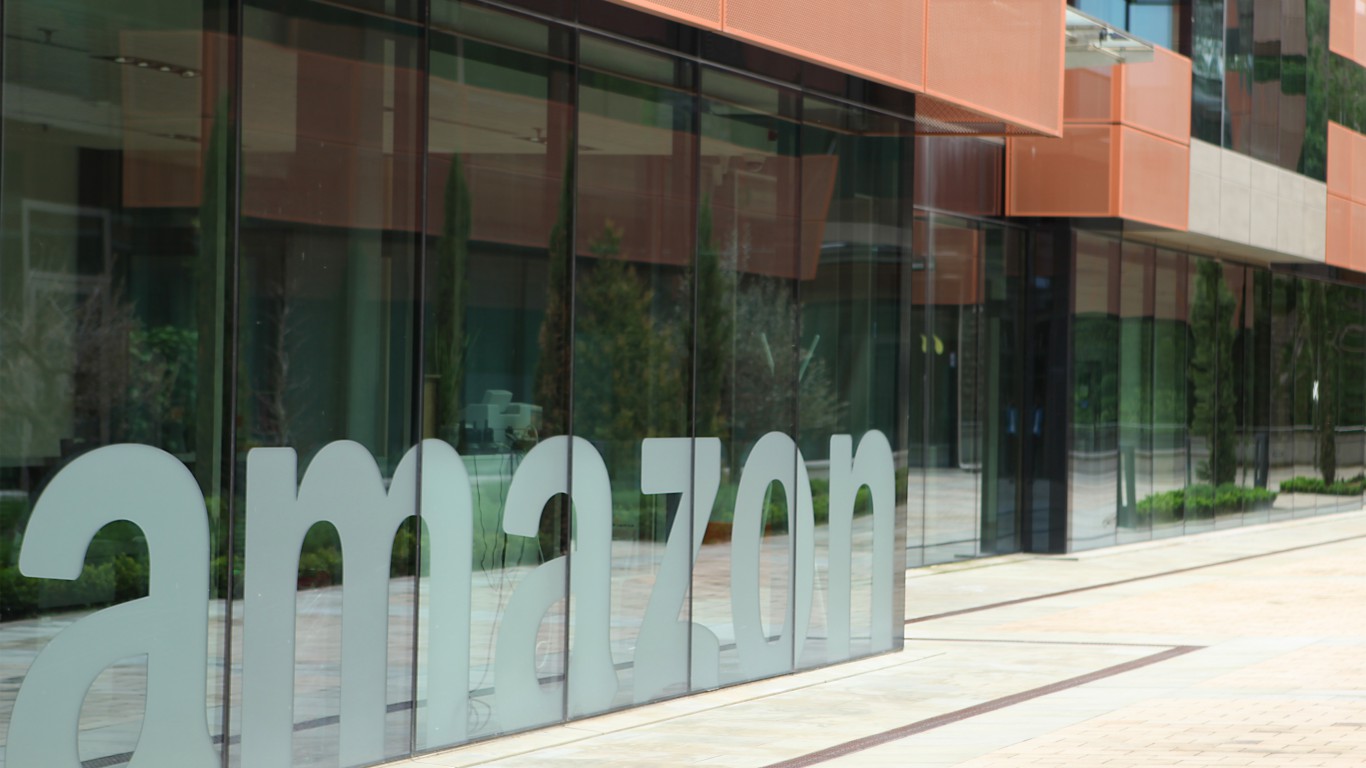

Management from Amazon, Google and Facebook have been called to Washington this week. The primary reason is for Congress to probe whether they are too powerful in their current states. In other words, a probe of antitrust activities. Among the companies most widely attacked for monopolistic activity is Amazon.com Inc. (NASDAQ: AMZN), which presidential candidate Elizabeth Warren has said should be broken into pieces.
Prime Day, which lasts 48 hours starting at 3 a.m. ET July 15, is an example of Amazon’s power. It says it will offer over a million products over the short period, blitzing the rest of the retail industry in the process. No other retailer has the ability to stage an event that has even close to its impact. That is, in part, because Amazon has over 100 million Prime members.
Amazon is a target because it dominates two industries in the United States: e-commerce and cloud computing. The most frequently mentioned fall out of Amazon’s success is the destruction of traditional brick-and-mortar retailing.
The federal government has broken up large American companies before, and it has come close to doing the same in other cases. The precedent for such actions was set over a century ago with the breakup of John D. Rockefeller’s Standard Oil Trust in 1911. It had a lock on the production, transportation and refining of oil in the United States. AT&T, which virtually controlled the American telecom market, was split up at the start of 1984. The government threatened to do the same with Microsoft, but the two parties reached an agreement in 1994 that limited the way Microsoft operated some of its businesses.
Whatever the government’s opinion may be about its business practices, Amazon continues to be one of the most respected brands in the United States — and these are American companies with the best reputations.
Amazon’s original business was e-commerce. It dominates that industry in the United States and, as mentioned, has contributed to the decline of the brick-and-mortar segment of retail. That, in turn, has triggered the loss of tens of thousands of American jobs, many industry analysts and economist say. E-commerce continues to be its largest operation. Amazon posted total revenue of $233 billion in 2018. Of this total, its North American e-commerce business contributed $141 billion. Its international business added $66 billion. Much of these domestic and international revenues are driven by Prime, a set of paid subscription services that Amazon created in 2005. Among Prime’s most significant benefits are a free video streaming service, which is among America’s most dominant, and a free shipping program.
E-commerce is the first of the three parts that constitute the operations that comprise Amazon. The company also is the world’s leader in cloud computing, one of the fastest growing segments of the tech industry. It is the top provider of these services by far. Its share of the public cloud business was recently put a 62%, followed by Microsoft at 20% and Google at 12%. The cloud division of Amazon is called Amazon Web Services (AWS). It had revenue of almost $26 billion last year and made just more than $7 billion, for an impressive 27% operating profit margin. This is the second part of Amazon that could be spun out into a separate company.
The revenue for Amazon’s third large and dominant business is rolled into its e-commerce operations, so financially, it is hard to identify. Amazon has a strong consumer electronics business that, among other things, dominates the market for artificial intelligence products that consumers use in their homes. Amazon also sells computers, e-readers and streaming media hardware. Amazon’s Alexa software can control home entertainment, communications, shopping and smart home services, including temperature control and light bulbs and cameras that are voice activated. Estimates are that Amazon has 75% of the global smart speaker market. It is almost certain to move these products into the business sector.
Former U.S. Secretary of Labor Robert Reich argues that the three companies could be regulated. He further explains, “A better alternative is to break them up. That way, the information would be distributed through a large number of independent channels without a centralized platform giving all content apparent legitimacy and extraordinary reach. And more startups could flourish.” Geography may have something to do with it, but there is more — here is why these cities are attracting the most startups.
One part of the debate about Amazon that is often left out is its effect on the overall U.S. economy. Like other mammoth tech corporations, Amazon is among the most profitable companies in the U.S. and world, and as such, it can pay its employees very high salaries — these are America’s highest paying companies.
Sponsored: Want to Retire Early? Here’s a Great First Step
Want retirement to come a few years earlier than you’d planned? Or are you ready to retire now, but want an extra set of eyes on your finances?
Now you can speak with up to 3 financial experts in your area for FREE. By simply clicking here you can begin to match with financial professionals who can help you build your plan to retire early. And the best part? The first conversation with them is free.
Click here to match with up to 3 financial pros who would be excited to help you make financial decisions.
Thank you for reading! Have some feedback for us?
Contact the 24/7 Wall St. editorial team.
 24/7 Wall St.
24/7 Wall St.


